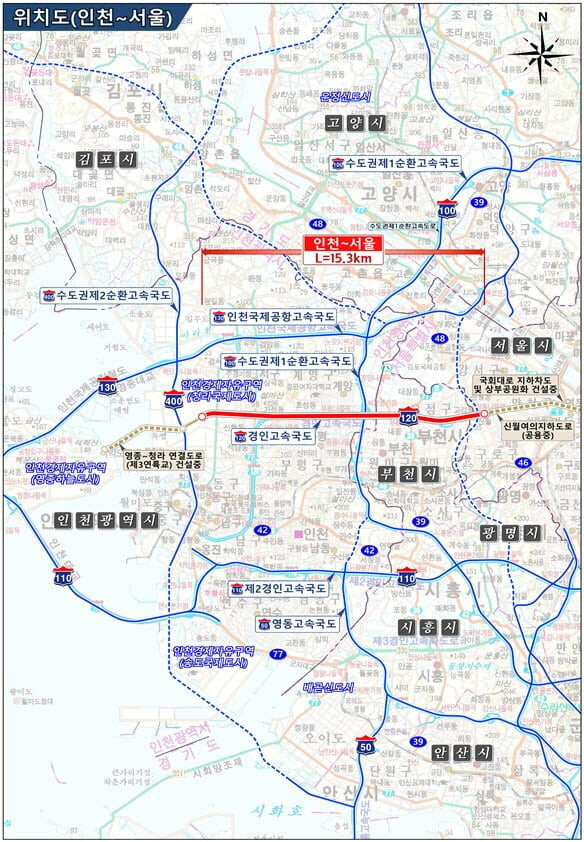
The recent approval of the preliminary feasibility study for the Gyeongin Expressway underground project is expected to bring positive changes to the real estate market in the surrounding areas. The project aims to alleviate the severe traffic congestion on the expressway and in the original city center by constructing a 15.3km underground section connecting Cheongna-dong in Incheon and Sinwol-dong in Seoul.
The project, with an estimated cost of 1.378 trillion won, involves building a four-lane underground highway at a depth of 30m. The existing Gyeongin Expressway will be converted into a general road with reduced lanes and a new park. Construction is expected to begin in 2029 and be completed in 2032.
The undergrounding of the Gyeongin Expressway is expected to improve traffic flow, reduce pollution, and revitalize the original city center. It will also benefit areas like Cheongna District, Bupyeong-gu, and northern Bucheon City by improving accessibility and connectivity.
The project is also expected to have a positive impact on the real estate market in these areas. The improved transportation infrastructure and the creation of new green spaces are expected to increase the attractiveness of the region and drive up property values.
In addition to the Gyeongin Expressway project, other similar projects are also being 추진 in the 수도권, including the undergrounding of the Seoul Ring Expressway and the Gyeongbu Expressway. These projects are expected to further improve traffic conditions and boost the real estate market in the region.
The Gyeongin Expressway underground project is a significant infrastructure project that is expected to bring about positive changes to the 수도권. It is expected to improve traffic conditions, reduce pollution, and boost the real estate market in the surrounding areas.
[Copyright (c) Global Economic Times. All Rights Reserved.]






























